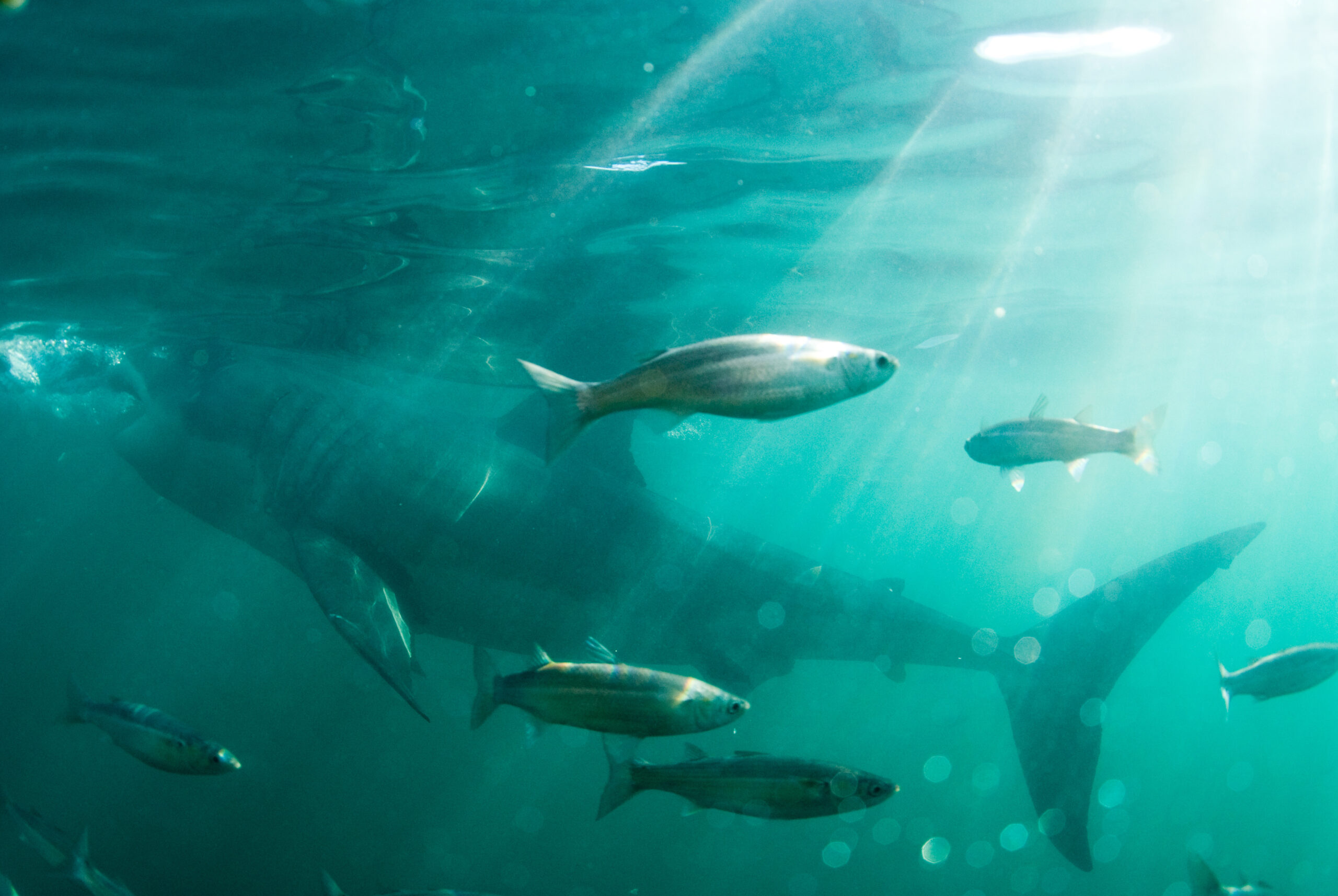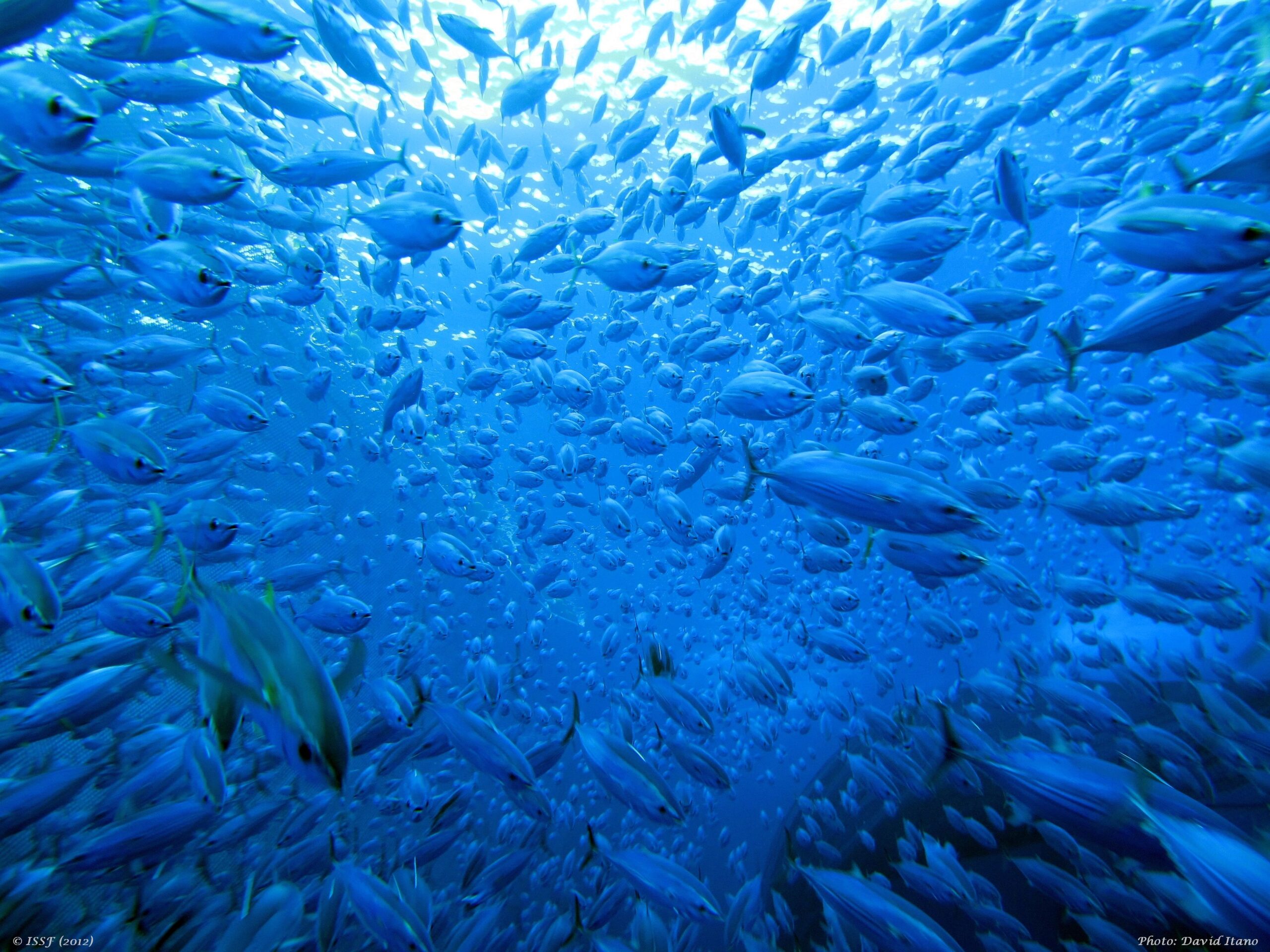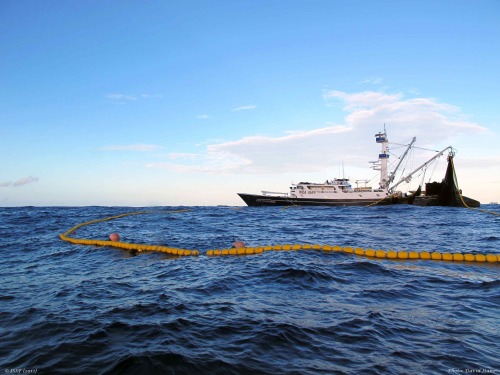Pacific Fisheries 2.0
Victor Restrepo is Chair of ISSF’s Scientific Advisory Committee. John Hampton is SPC’s Oceanic Fisheries Programme Manager.
Pacific fisheries observers typically rely on paper data collection forms. These forms have been central to management decisions that promote sustainability, but they’re hardly cutting edge or even era-appropriate. The format can be tedious and subject to error upon transcription into the computer databases. Worse, the sluggishness of an inter-governmental system based on pad and paper has led to a severe backlog of critical information pertaining to fish aggregating devices (FADs), as well as figures for vessel catches, effort and bycatch.
Our groups – the International Seafood Sustainability Foundation (ISSF) and the Secretariat of the Pacific Community (SPC) – have partnered to help improve monitoring, control and surveillance, data collection, data analysis and the tracking of FAD data in the region. Our first order of business has been to eliminate the existing backlog. We’ve assigned qualified data entry personnel to transfer important information on FADs from the observer sheets into the database.
Eliminating the backlog to fill in data holes is a priority right now, but the adoption of interoperable and comprehensive electronic reporting by the various national and regional managementbodies in the Pacific is the big picture mission of this partnership.
Here’s how the system currently works: skippers fill out required paper forms and submit them to their national authorities, who are responsible for resending the data to the regional management agency, the WCPFC. Observers also fill out forms and submit them to their national program office, which must re-transmit them to regional offices. At each step, there is potential for errors in reading or transcribing data, time delays, and – as the current backlog proves – accumulation of valuable information that is not being used efficiently for fisheries management or monitoring and compliance.
Electronic reporting is the answer. The data can be entered into computers or tablets at sea in the first instance, eliminating errors in reading and transcription. And it can be sent almost in real time, on a daily basis for select important information, but usually at the end of each trip, to both national and regional offices – making it immediately usable. The utility is obvious, and many fleets and countries are interested in implementing e-reporting for their fisheries. But, if this happens without regional coordination, there is a risk that the various systems will be incompatible and the current problems would not be addressed, or worse, deteriorate further. The SPC is uniquely positioned to help coordinate between the various regionalbodies and national authorities to avoid a patchwork of incompatible systems that don’t talk to one another.
A key element of our partnership is the testing of an electronic logbook developed by SPC, the eTUNALOG, on vessels from different fishing fleets. The eTUNALOG allows the captains to enter their data on a computer or tablet and transmit it directly to the databasesof the various national and regional authorities.
For purse seine vessels, the eTUNALOG project is being trialed on vessels from Solomon Islands, Federated States of Micronesia, New Zealand and the United States, and the regional tuna databases are beginning to receive information. Other countries have expressed interest in joining the project. For longline vessels, while the technology is still in development, several countries are beginning to volunteer for trials. Once the systems have been fully tested and finalised, SPC will provide and support purse seine and longline eTUNALOG systems to countries that wish to use them.
SPC is also providing advice to other initiatives – for example, the Papua New Guinea National Fisheries Authority has developed an E-Reporting system for vessels fishing in their EEZ – to ensure the regional standardization of the data available to the stock assessments.
As some of the most insightful fisheries experts in the region descended upon Majuro in early August for the WCPFC Science Committee meeting, our partners made a concerted effort to reinforce that the possibility of a system-wide upgrade of data collection and sharing is not a pie-in-the-sky dream – it’s very achievable and impactful. And we will continue reinforcing that ideal throughout the region. Pilot programs have been run, more research is on the way and most can agree that something has to be done. The knowledge is there, the will is there, so now it becomes a matter of proceeding carefully so that updates are made correctly and homogeneously across the entire region.
This piece originally appeared in the Marshall Islands Journal.


